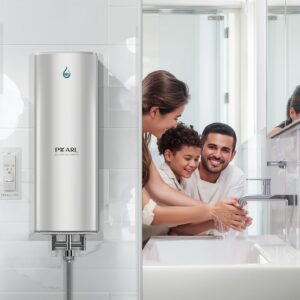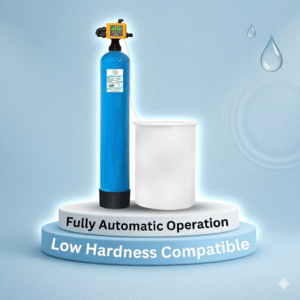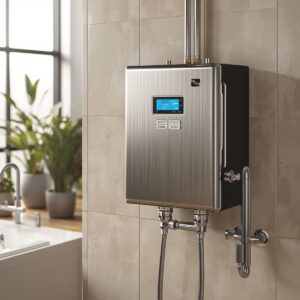Carbon Filters: A Complete Guide for Pure and Safe Water Filtration
Meta Description:
Discover the benefits, types, working, and applications of carbon filters in water purification. Learn why carbon filters are essential for clean, fresh-tasting water.
Introduction
Water is a vital resource for life, but the quality of water we consume plays a critical role in our health and wellbeing. Unfortunately, natural water sources and even treated municipal water can still contain impurities, chemicals, and unpleasant tastes or odors. This is where carbon filters come into play.
A carbon filter is one of the most effective and widely used filtration technologies for improving water quality. It works by removing contaminants, chemicals, and odors through a process called adsorption. Whether in domestic RO (Reverse Osmosis) systems, industrial water treatment plants, or even air purification systems, carbon filters are a trusted solution for delivering clean, fresh water.
What is a Carbon Filter?
A carbon filter is a purification device that uses activated carbon as the main filtering medium. Activated carbon is processed to have a high surface area, allowing it to capture and hold contaminants effectively.
Carbon filters are commonly made from coconut shell carbon, coal-based carbon, or wood-based carbon. Coconut shell carbon is considered the highest quality due to its density and excellent adsorption capacity.
How Do Carbon Filters Work?
The working principle of carbon filters is adsorption, not absorption. In adsorption, impurities stick to the surface of the carbon particles instead of being absorbed into the material.
When water passes through the filter:
Chemical Contaminants like chlorine, pesticides, and industrial solvents bind to the carbon’s surface.
Sediments and Particles are trapped in the filter structure.
Taste and Odor are improved by removing organic compounds.
The result is clean, odorless, and better-tasting water.
Types of Carbon Filters
Carbon filters come in various forms depending on their structure and purpose:
1. Granular Activated Carbon (GAC) Filters
Contains loose granules of activated carbon.
Best for improving taste and odor.
Common in point-of-use (POU) filters and under-sink systems.
2. Carbon Block Filters
Made by compressing activated carbon into a solid block.
Offers better contaminant removal due to longer contact time.
Effective against chlorine, pesticides, and certain heavy metals.
3. Powdered Activated Carbon (PAC) Filters
Carbon in powdered form.
Often used in combination with other filtration systems.
4. Catalytic Carbon Filters
Specially treated to remove chloramine, a disinfectant found in municipal water.
Effective against stubborn chemical contaminants.
Benefits of Carbon Filters
Using a carbon filter for water purification comes with multiple advantages:
1. Removes Harmful Chemicals
Eliminates chlorine, chloramine, pesticides, and volatile organic compounds (VOCs).
2. Improves Taste and Odor
Makes water fresh and pleasant to drink.
3. Protects RO Membranes
In RO systems, carbon filters act as a pre-filter, protecting the main membrane from chlorine damage.
4. Environmentally Friendly
Reduces reliance on bottled water, lowering plastic waste.
5. Cost-Effective
Provides long-lasting filtration at an affordable cost.
Applications of Carbon Filters
Carbon filters are used in various sectors, including:
Residential Water Purifiers – Installed in kitchen RO or under-sink systems.
Commercial Applications – Restaurants, hotels, and beverage industries use them for better water quality.
Industrial Water Treatment – Removes organic contaminants in factories.
Aquariums – Keeps water safe for fish.
Air Purification – Removes odors and pollutants from the air.
Carbon Filter in RO Systems
In an RO water purifier, the carbon filter plays a crucial role as a pre-carbon filter and sometimes as a post-carbon filter.
Pre-Carbon Filter: Removes chlorine and chemicals before water reaches the RO membrane.
Post-Carbon Filter: Polishes water after RO treatment, improving taste and removing residual odors.
Without a carbon filter, an RO membrane’s lifespan would drastically reduce.
Maintenance and Replacement
Like all filtration systems, carbon filters require regular maintenance. Over time, the pores of activated carbon become clogged, reducing filtration efficiency.
Replacement Tips:
Most carbon filters need replacement every 6–12 months depending on water quality and usage.
If water develops an unusual taste or odor, it may be time to replace the filter.
Always use high-quality carbon filters from trusted brands for best results.
How to Choose the Right Carbon Filter
When selecting a carbon filter, consider the following factors:
Type of Filter – Choose between GAC, carbon block, or catalytic carbon based on your needs.
Micron Rating – Smaller micron ratings mean finer filtration.
Flow Rate – Ensure the filter meets your water demand.
Certification – Look for NSF or equivalent certifications for safety and performance.
Material Quality – Prefer coconut shell carbon for best performance.
Carbon Filter Price in India
The price of a carbon filter in India depends on size, type, and brand:
Household RO Carbon Filter: ₹150 – ₹500
Commercial Carbon Filter Cartridge: ₹1,000 – ₹5,000
Industrial Carbon Filters: ₹10,000 and above
Pearl Water Technologies, for example, offers premium-quality carbon filters at competitive prices, ensuring long-lasting performance and maximum water purity.
Conclusion
Carbon filters are an essential component in modern water purification systems. They ensure safe, great-tasting water by removing harmful chemicals, improving flavor, and protecting other filtration components like RO membranes. Whether for home, commercial, or industrial use, investing in a high-quality carbon filter is a smart choice for health and sustainability.
By choosing the right filter type and replacing it at the recommended intervals, you can enjoy clean, fresh water for years to come.
✅ Key Takeaway:
If you want pure, fresh, and safe drinking water, a carbon filter is not just an option—it’s a necessity.


